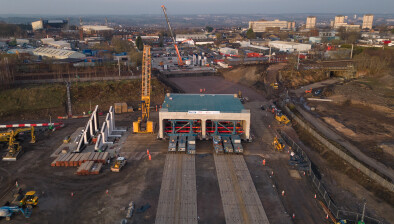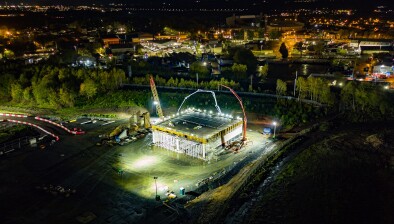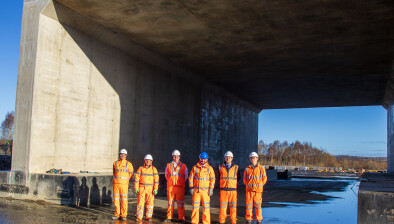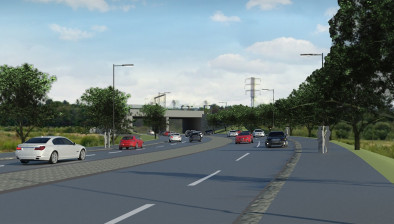Cleland rail bridge to be raised to avoid lorry strikes
The Bellside Bridge at Cleland in Wishaw is set to be raised in height to prevent the bridge from being damaged by high-sided vehicles.
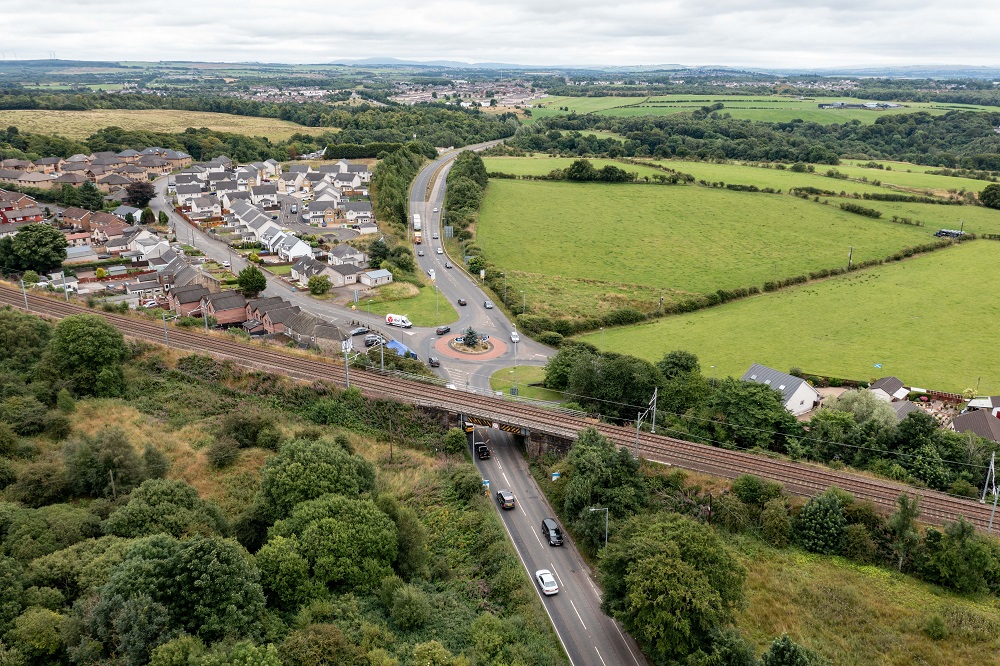
Work on the Network Rail and North Lanarkshire Council project to replace the bridge deck will begin on August 30.
The railway bridge, over the A73, is the most frequently struck bridge in Scotland and the seventh most struck in the UK.
When a vehicle strikes the bridge the road and rail line must be closed while an inspection is carried out and traffic diverted through Cleland village.
Story Contracting is completing the works, which are expected to last eight weeks and will replace the existing bridge deck with a thinner one, providing additional headroom under the structure.
This will remove its classification as a low bridge and the need for a signed diversion route through Cleland for high sided vehicles. The impact of bridge strikes on the local road network will be reduced and trains will be able to run more safely and reliably.
To allow the work to be carried out safely a road closure is required. Road users are being advised of a five-week road closure on the A73 from south of the junction with Fernieshaw Road to north of Bellside roundabout from Monday 13 September 2021 to Friday 15 October 2021. A signed diversion route will be maintained for the duration of the closure.
Councillor Michael McPake, convener of the environment and transportation committee, said: “The work at Bellside Bridge will bring significant road safety improvements for residents and businesses in Cleland, as heavy lorries will no longer need to travel through the village.
“Thanks to our partnership work with Network Rail, a long-term solution to the problem of lorries striking the bridge will be delivered before the end of this year.”
Stewart Lothian, Network Rail’s structures asset manager for Scotland, said: “This bridge is the most bashed in the country and has been struck 56 times over the last decade causing over 3,000 minutes of delay to trains.
“We are pleased to have been able to work with North Lanarkshire Council to find a long-term solution to this problem which will improve performance and enhance safety on our railway.”













